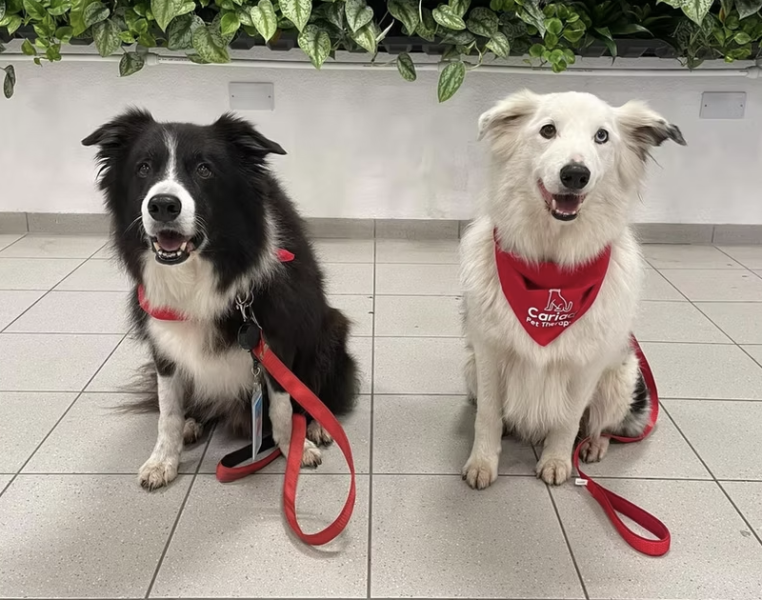The Be-a-friend team should not take the responsibilities of a Carer.
Be-a-friend take referrals from, and work closely with local agencies to identify those in most need, with their consent, who would benefit from our service. The referral process includes carefully matching a Be-a-friend team to a Be-a-friendee by the co-ordinator. The co-ordinator works with and supports the Be-a-friend team and arranges meetings for a set time or on a regular basis at the Be-a-friendee’s home.
A match will have a trial period (e.g. three or four meetings), with a high level of support from the co-ordinator including reviews to allow both the Be-a-friend team and the Be-a-friendee to comment on the suitability of the match. Be-a-friend teams will be supported in their role by the co-ordinator and head office through communication platforms, training, review, and feedback processes.
Be-a-friend follows on from the support provided by Dogs on your Doorstep that Cariad Pet Therapy ran alongside the Therapy Dog visits. Be-a-friend is a stand-alone service, funded by The National Lottery Community Fund.
Why did we start Be-a-friend?
The objective of Be-a-friend is to form a trusting relationship over time in order to reduce loneliness and to provide a relationship where none currently exists.
Be-a-friend addresses loneliness in older people in Pembrokeshire who love dogs and miss the contact with four paws in their home. This is achieved through visits from a Be-a-friend team who provide much needed companionship. By combining compassionate volunteers with their engaging dogs, this partnership can address the challenge loneliness brings to our community.
Loneliness can be profound and wide-ranging, considered by many to be one of the largest public health challenges we face. Be-a-friend will make a difference to older people in our community who are lonely. According to the latest National Survey for Wales (2024): almost three quarters of people aged over 65 (72%) report feeling lonely ‘sometimes’, while 10% of older people in Wales– an estimated 91,000 people – feel ‘consistently’ lonely.
A visit from a dog into a person’s home can:
-
Reduce isolation and loneliness
-
Develop self-confidence
-
Improve wellbeing
-
A supportive and consistent service
-
Increase the flow of feel-good hormones
-
Reduce stress and lower blood pressure
-
A welcome routine, something to look forward to
We must remember that the love for a dog will never end, so a visiting Be-a-friend volunteer with their Be-a-friend dog can make a difference to older persons who are lonely and unable to care for a dog anymore, or have lost a dog recently.
Criteria for Be-a-friendee Referral
Referrals may come via a local agency who whilst carrying out their duties have close links with older people or from friends or family.
An 'older person' is 60 years and older in respect of this service.
A Be-a-friendee may experience one or several of the situations listed below:
• Not have friends or family members living close by who are able to visit regularly
• Has experienced a bereavement of a partner, relative, friend or pet
• Most likely living alone
• May be living with limiting disabilities or illnesses
• Maybe caring for a partner with limited opportunity to socialise with others
• Be on a low fixed income, such as pension, making activities unaffordable
A Be-a-friendee must consent to a visit from a volunteer and their dog and agree to a pre-visit assessment to ensure that a ‘be-a-friending’ visit is appropriate to safeguard all parties.
Ideally, but not necessarily a Be-a-friendee will have had pets/animals in the past.
Make an enquiry
If you want to enquire about a visit from one or more of our therapy dog teams please email [email protected] or call the office on 01437 723 628.
Once we have logged your request we will liase with you on the potential availability of therapy dogs to visit, then we will send you the relevant paperwork and discuss visit protocols and logistics.
Please note: there is a small fee for some visits to the private sector (such as workplaces, private care settings and student services) to assist with volunteer expenses and the running of our service.


